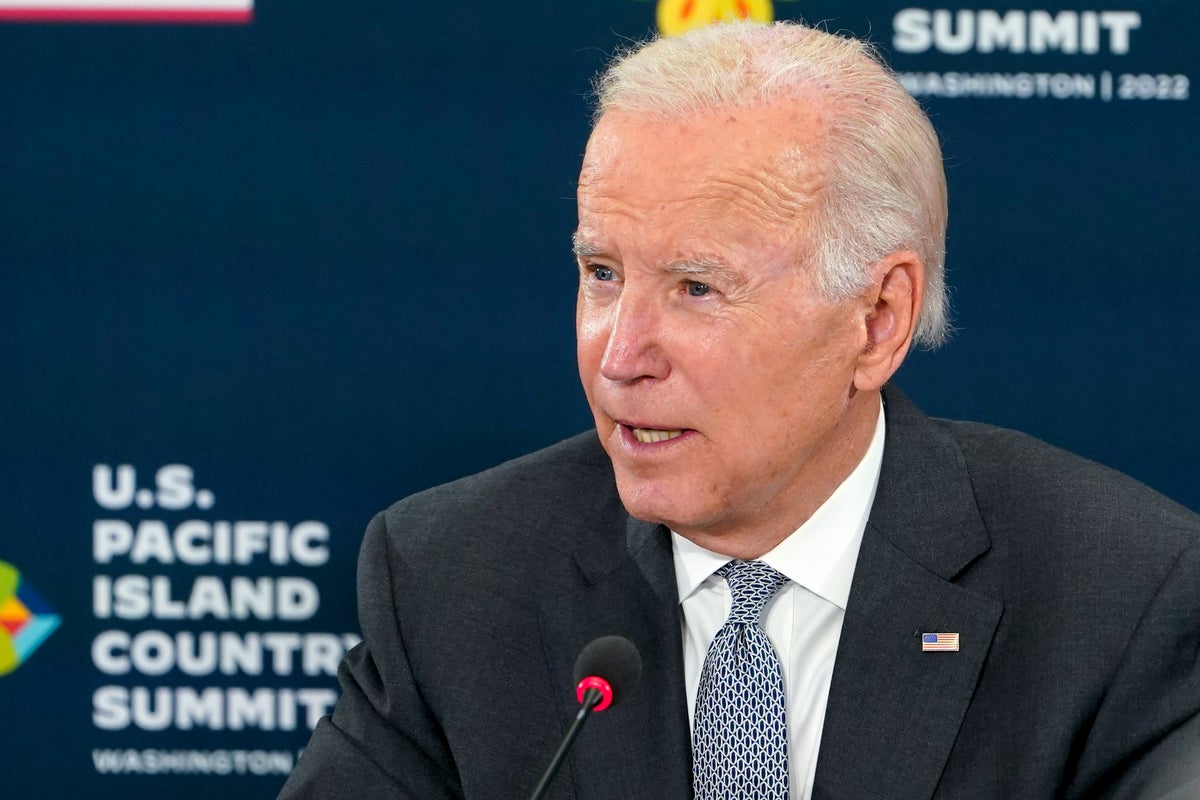
President Joe Biden is set to announce the opening of new U.S. embassies on Cook Islands and Niue on Monday as the Democratic administration aims to demonstrate to Pacific Island leaders that it remains committed to increasing American presence in the region.
The announcement about the new diplomatic missions in the South Pacific comes as Biden prepares to welcome leaders to Washington for the two-day U.S.-Pacific Island Forum Summit. Talks are expected to heavily focus on the impact of climate change in the region.
Biden has put a premium on improving relations in the Pacific amid rising U.S. concern about China’s growing military and economic influence. Plans about the embassies were confirmed by two senior administration officials who briefed reporters on the condition of anonymity before the formal announcement.
White House press secretary Karine Jean-Pierre said Biden would use the summit to strengthen “ties with the Pacific Islands and discuss how we address complex global challenges, like tackling the existential threat of climate change, advancing economic growth, and promoting sustainable development.”
The leaders were scheduled to be feted on Sunday at a Baltimore Ravens football game and to visit a Coast Guard cutter in Baltimore Harbor for a briefing by the commandant of the U.S. Coast Guard on combatting illegal fishing and other maritime issues.
Pacific Island leaders have been critical of rich countries for not doing enough to control climate change despite being responsible for much of the problem, and for profiting from loans provided to vulnerable nations to mitigate the effects.
At last year's summit, the White House unveiled its Pacific strategy, an outline of its plan to assist the region’s leaders on pressing issues like climate change, maritime security and protecting the region from overfishing. The administration pledged the U.S. would add $810 million in new aid for Pacific Island nations over the next decade, including $130 million on efforts to stymie the impacts of climate change.
The forum includes Australia, Cook Islands, Micronesia, Fiji, French Polynesia, Kiribati, Nauru, New Caledonia, New Zealand, Niue, Palau, Papua New Guinea, Republic of Marshall Islands, Samoa, Solomon Islands, Tonga, Tuvalu, and Vanuatu.
Biden will welcome the leaders to the White House on Monday morning for talks and a working lunch. They also will meet on Monday with Biden's special envoy on climate, John Kerry, for talks focused on climate change. Secretary of State Antony Blinken and U.N. ambassador Linda Thomas-Greenfield will host the leaders at the State Department for a dinner.
Kerry and USAID administrator Samantha Power will host the leaders on Tuesday for climate talks with members of the philanthropic community. The leaders also are slated to meet with members of Congress and Treasury Secretary Janet Yellen is to host a roundtable with the leaders and members of the business community.
Power last month travelled to Fiji to open a new USAID mission that will manage agency programs in nine Pacific Island countries: Fiji, Kiribati, Nauru, Samoa, Tonga, Tuvalu, Republic of the Marshall Islands, Federated States of Micronesia, and Palau. The U.S. this year has opened embassies in Solomon Islands and Tonga, and is on track to open an embassy in Vanuatu early next year.
The White House said most members of the 18-member forum were dispatching their top elected official or foreign minister to the summit.
But the administration was “very disappointed” Solomon Islands Prime Minister Manasseh Sogavare, who was in New York last week for the U.N. General Assembly, opted not to stick around for the White House summit, according to an administration official. The Solomon Islands last year signed a security pact with China.
Prime Minister Meltek Sato Kilman Livtuvanu of Vanuatu also is expected to miss the summit. He was elected by lawmakers earlier this month to replace Ishmael Kalsakau, who lost a no-confidence vote in parliament.
Biden earlier this year had to cut short a planned visit to the Indo-Pacific, scrapping what was to be a historic stop in Papua New Guinea, as well as a visit to Australia for a gathering with fellow leaders of the so-called Quad partnership so he could focus on debt limit talks in Washington. He would have been the first sitting U.S. president to visit Papua new Guinea.
The U.S. president is set to honor Australian Prime Minister Anthony Albanese with a state visit next month.







